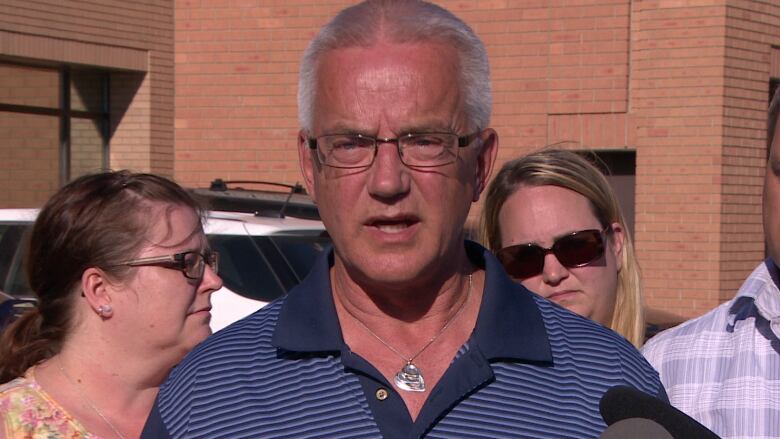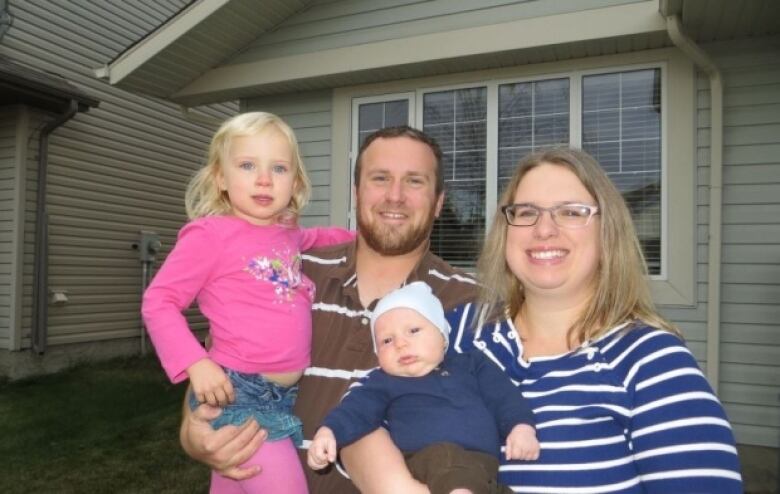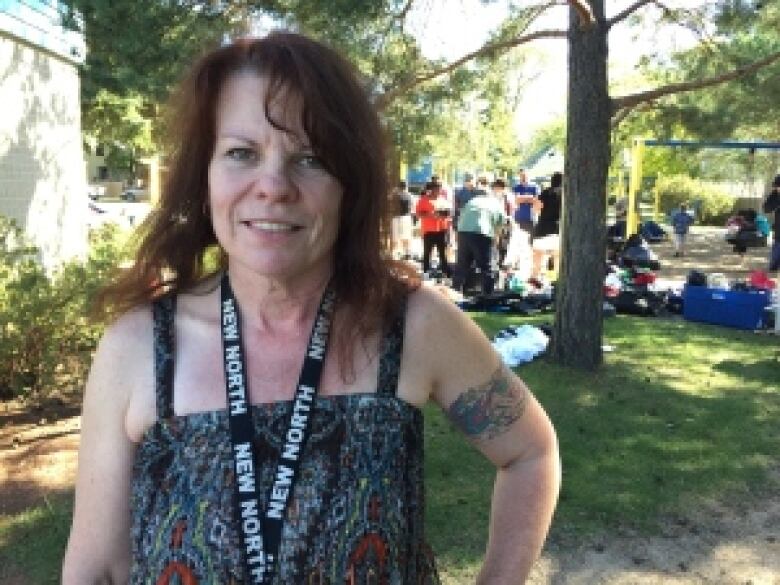Catherine McKay case renews calls to review Sask. drunk driving laws
Suggestions include taking breath samples and lowering the blood alcohol limit for young drivers

The tragic deaths of a Saskatoon family of four, and the sentencing of the woman behind the wheel of the car that killed them, haverenewed calls for tougher drunk driving legislationin Saskatchewan.
Catherine McKay, 49, had three times the legal limit of alcohol in her blood when she failed to halt at a stop sign at Wanuskewin Road and Highway 11 on January 3.
- Catherine McKay gets 10 years for killing Van de Vorst family in car crash
- Saskatoon family of 4 dead after highway crash

Her Jeep Wrangler SUV slammed into a Hyundai Elantra carrying the Van de Vorst family in a collision so intense it pushed their vehicles 30 metres away from the point of impact.
The judge said Saskatchewan has the worst record; let's make Saskatchewanhave the worst penalty- Louis Van de Vorst
Chanda and Jordan Van de Vorst were pronounced dead at the scene. Their two children, Miguire, 2, and Kamryn, 5, both died later in hospital.
Details of McKay's drinking in the hours leading up to the crash were revealed at Saskatoon Provincial Court on Wednesday, when the former executive director of the Saskatoon Sports Council was sentenced to 10years in prison.
A fateful decision to drive

McKay started drinking wine at home while cooking dinner and then went out to a bar. Employees there said it appeared she was intoxicated and slurring her words.
She then drove to another bar to sing karaoke. Court heard that McKay appeared to be stumbling at the time she left the second bar around 12:05 a.m. CST.
At 12:30 a.m., she drove to Wanuskewin Road.
After the sentencing, Louis van de Vorst questioned why there were not harsher penalties for drunk driving in Saskatchewan.
"I was hoping that the judge would say '10 years is not quite enough.' I was hoping for at least 12," Van de Vorst said, adding the judge had a chance to set a precedent for penalizing drunk drivers in Saskatchewan.
"The judge said Saskatchewan has the worst record; let's make Saskatchewan have the worst penalty. That's what we were hoping for, so we didn't quite get that."
Review the law
Robert Solomon is the national director of legal policy for Mothers Against Drunk Driving Canada, which provides support for victims and survivors of drunk driving crashes.
The University of Western Ontario law professor told CBC Radio's Blue Sky on Thursday that there were a number of legislative changes that could be introduced to discouragedrunk driving in Saskatchewan.
He said the province should raise its youngest allowable driving age from 15 to 16 and introduce a blood-alcohol limit of zero for drivers under 20 or 21.
Solomon also saidthe province should strengthen its licence suspension program by introducing roadside vehicle impoundment, which he said had been successful in B.C. and Alberta. Police should be able to ask for a breath sample without needing evidence to suspectthe person has been drinking, he added.
However, he said bars and drinking establishments should also be subject to stricter enforcement of their liquor licenses, which require that they do not serve alcohol to people who are already intoxicated.
"Now I can't tell how long McKay was in these bars, whether she was served, but it's disappointing that no one in the bar thought about the implications of allowing her to stumble out of their bar, drunk," said Solomon.
Training for bar staff
Under Saskatchewan Liquor and Gaming Authority rules, bar staff undergo mandatory training to recognize and deal with people who are drinkingand potentially driving.
SLGA isphasing in a program over the next three years, requiring all staff who serve liquor to take a test.
A spokesman said it covers techniques on how to prevent people from becoming intoxicated, as well as other common issues.
With files from CBC Radio's Blue Sky













_(720p).jpg)


 OFFICIAL HD MUSIC VIDEO.jpg)
.jpg)



























































































